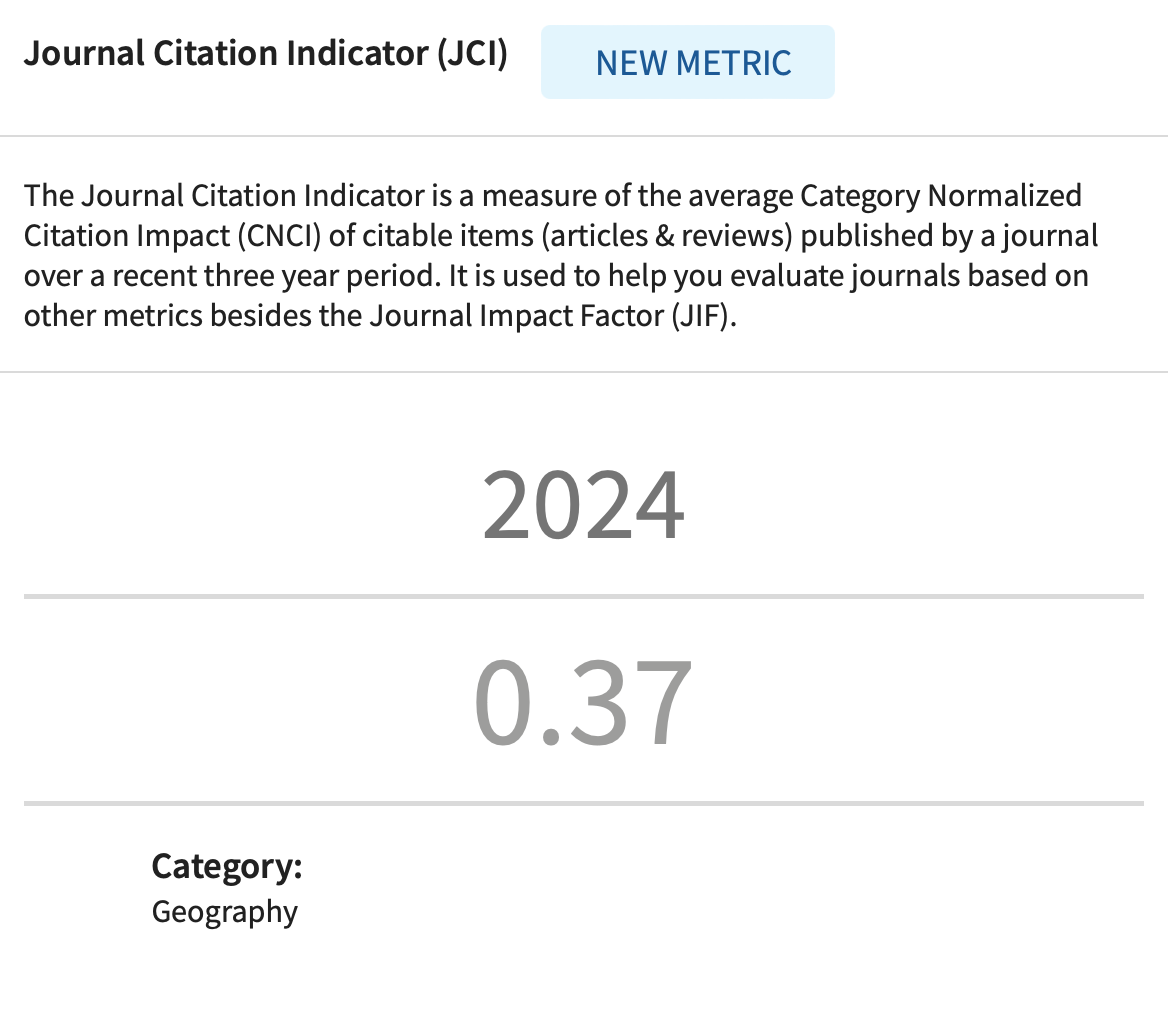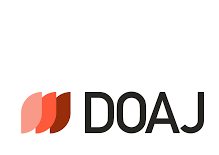GUIDING THE FUTURE: WHAT GENERATION Z EXPECTS FROM TOURIST GUIDES
DOI:
https://doi.org/10.2298/IJGI240819018M%20Keywords:
tourist guide, generation Z, tourist guide performancesAbstract
Tourist guides have a significant role in the tourism industry, serving as intermediaries facilitating travelers' understanding of their destinations. Historically, guides have been essential in travel experiences, providing insights, narrating the history, and enhancing the overall journey. Hence, the influence of tourist guides on tourist satisfaction and their role in influencing the destination's image have been the subjects of numerous researchers. However, there is not much research regarding Generation Z attitudes about guides. Generation Z is the generation that will travel more in the future. With that in mind, the aim of this paper is to investigate the attitudes and preferences of Generation Z regarding tourist guides, focusing on the essential qualities, behaviors, and types of information that meet their expectations. The survey involved 203 participants. The Statistical Package for the Social Sciences (SPSS) was employed for exploratory factor analysis (EFA), independent t-tests, and one-way ANOVA, whereas R was utilized for confirmatory factor analysis (CFA). The findings highlight the need for tourist guides to possess substantial knowledge and demonstrate practical communication skills, as Generation Z respondents prioritize knowledgeable and well-informed guides, valuing their expertise about the destination. However, the study also found that facilitating active group participation and promoting connections with local communities are less important to this generation.
Article metrics
References
Akgiş İlhan, Ö., Özoğul Balyalı, T., & Günay, S. (2023). A Holistic View of the Tourist Experience of Generation Z. Advances in Hospitality and Tourism Research (AHTR), 11(3), 341–370. https://doi.org/10.30519/ahtr.1125474
Akkuş, G., & Arslan, A. (2023). Work-related stress experienced by tour guides. Turyzm/Tourism, 33(2), 95–110. https://doi.org/10.18778/0867-5856.33.2.08
Alazaizeh, M. M., Jamaliah, M. M., Mgonja, J. T., & Ababneh, A. (2019). Tour guide performance and sustainable visitor behavior at cultural heritage sites. Journal of Sustainable Tourism, 27(11), 1708–1724. https://doi.org/10.1080/09669582.2019.1658766
Albrecht, J. N., Moscardo, G., & Dwyer, T. (2022). Learning about learning in tourism: Indigenous guide perspectives on their personal and professional development. Journal of Hospitality & Tourism Research, 46(2), 320–343. https://doi.org/10.1177/1096348021997535
Al-Okaily, N. S. (2021). A Model for Tour Guide Performance. International Journal of Hospitality & Tourism Administration, 23(6), 1077–1101. https://doi.org/10.1080/15256480.2021.1905584
Alrawadieh, Z., Cetin, G., Dincer, M. Z., & Istanbullu Dincer, F. (2020). The impact of emotional dissonance on quality of work life and life satisfaction of tour guides. The Service Industries Journal, 40(1–2), 50–64. https://doi.org/10.1080/02642069.2019.1590554
Andruszkiewicz, K., Grzybowska-Brzezińska, M., Grzywińska-Rąpca, M., & Wiśniewski, P. D. (2023). Attitudes and Pro-Environmental Behavior of Representatives of Generation Z from the Example of Poland and Germany. Sustainability, 15(20), Article 15068. https://doi.org/10.3390/su152015068
Ap, J., & Wong, K. K. F. (2001). Case study on tour guiding: professionalism, issues and problems. Tourism Management, 22(5), 551–563. https://doi.org/10.1016/S0261-5177(01)00013-9
Artemyev, A., Abdreyeva, S., & Batbaatar, Z. (2019). Tour Guiding as a Factor of Tourism Development Along the Route of the Great Silk Road in Kazakhstan. In K. Chon, T. Tse, P. K. Karo, & Y. D. Fitriansyah (Eds.), Proceedings of the 1st International Conference One Belt, One Road, One Tourism (ICOBOROT 2018) (pp. 145–148). Atlantis Press. http://dx.doi.org/10.2991/icoborot-18.2019.1
Barbe, D., & Neuburger, L. (2021). Generation Z and Digital Influencers in the Tourism Industry. In N. Stylos, R. Rahimi, B. Okumus & S. Williams (Eds.), Generation Z Marketing and Management in Tourism and Hospitality: The Future of the Industry (pp. 167–192). Palgrave Macmillan, Cham. https://doi.org/10.1007/978-3-030-70695-1_7
Bogueva, D., & Marinova, D. (2020). Cultured meat and Australia's generation Z. Frontiers in Nutrition, 7, Article 148. https://doi.org/10.3389/fnut.2020.00148
Brito, L. M. (2020). The Consequences of Guiding Profession Deregulation for the Status and Training of Tourist Guides: a Portuguese Overview. International Journal of Tour Guiding Research, 1(1), 34–44. https://doi.org/10.21427/7138-ec33
Cetin, G., & Yarcan, S. (2017). The professional relationship between tour guides and tour operators. Scandinavian Journal of Hospitality and Tourism, 17(4), 345–357. http://dx.doi.org/10.1080/15022250.2017.1330844
Chang, K. C. (2014). Examining the Effect of Tour Guide Performance, Tourist Trust, Tourist Satisfaction, and Flow Experience on Tourists' Shopping Behavior. Asia Pacific Journal of Tourism Research, 19(2), 219–247. https://doi.org/10.1080/10941665.2012.739189
Cohen, E. (1985). The tourist guide: The origins, structure and dynamics of a role. Annals of Tourism Research, 12(1), 5–29. https://doi.org/10.1016/0160-7383(85)90037-4
Demirdelen Alrawadieh, D., & Dinçer, M. (2021). Emotional Labor, Quality of Work Life, and Life Satisfaction of Tour Guides: The Mediating Role of Burnout. Journal of Tourism Leisure and Hospitality, 3(2), 118–128. https://doi.org/10.48119/toleho.936766
Dragolea, L. L., Butnaru, G. I., Kot, S., Zamfir, C. G., Nuţă, A. C., Nuţă, F. M., Cristea, D. S. & Ştefănică, M. (2023). Determining factors in shaping the sustainable behavior of the generation Z consumer. Frontiers in Environmental Science, 11, Article 1096183. https://doi.org/10.3389/fenvs.2023.1096183
Düz, B. (2018). What do tourists wonder about Turkey’s cultural heritage? A study to determine frequently asked questions to tour guides. Tourism, Leisure and Global Change, 5, 466–476. https://www.cabidigitallibrary.org/doi/pdf/10.5555/20203233286
El-Menshawy, S. (2016). Effective Rapport in Tourist Guiding (Interpretation of Themes). Journal of Socialomics, 5(3), Article 1000172. http://dx.doi.org/10.4172/2471-8726.1000172
European Federation of Tourist Guide Associations. (n.d.). CEN Definitions. European Federation of Tourist Guide Associations. https://www.feg-touristguides.com/cen_definitions.php
Fornell, C., & Larcker, D. F. (1981). Evaluating Structural Equation Models with Unobservable Variables and Measurement Error. Journal of Marketing Research, 18(1), 39–50. https://doi.org/10.1177/002224378101800104
Fu, T., Li, S., Xu, J., Liu, M., & Chen, G. (2023). Examining tour guide humor as a driver of tourists’ positive word of mouth: a comprehensive mediation model. International Journal of Contemporary Hospitality Management, 35(5), 1824–1843. https://doi.org/10.1108/IJCHM-05-2022-0587
Galí, N. (2022). Impacts of COVID-19 on local tour guides. Journal of Tourism and Cultural Change, 20(6), 788–805. https://doi.org/10.1080/14766825.2022.2046016
Gnanapala, W. A. (2015). Tourists Perception and Satisfaction: Implications for Destination Management. American Journal of Marketing Research, 1(1), 7–19. http://www.aiscience.org/journal/ajmr
Gold, A. H., Malhotra, A., & Segars, A. H. (2001). Knowledge Management: An Organizational Capabilities Perspective. Journal of Management Information Systems, 18(1), 185–214. https://doi.org/10.1080/07421222.2001.11045669
Gültekin, S., & Icigen, E. (2019). A Research on Professional Tour Guides Emotional Intelligence and Problem-Solving Skills. Journal of Quality Assurance in Hospitality & Tourism, 20(2), 230–258. https://doi.org/10.1080/1528008X.2018.1524810
Güzel, Ö., Nacak, E., Bilgi, E., & Kalin, V. (2021). Sustainable Tourism and The Roles of Tour Guides in Destinations: A Qualitative Case Study in Turkey. Journal of Economy Culture and Society, 63, 149–153. http://dx.doi.org/10.26650/JECS2020-0015
Hayes, A. F., & Coutts, J. J. (2020). Use Omega Rather than Cronbach’s Alpha for Estimating Reliability. But…. Communication Methods and Measures, 14(1), 1–24. https://doi.org/10.1080/19312458.2020.1718629
Henseler, J., Ringle, C. M., & Sarstedt, M. (2015). A new criterion for assessing discriminant validity in variance-based structural equation modeling. Journal of the Academy of Marketing Science, 43, 115–135. https://doi.org/10.1007/s11747-014-0403-8
Heung, V. (2008). Effects of tour leader’s service quality on agency’s reputation and customers’ word-of-mouth. Journal of Vacation Marketing, 14(4), 305–315. http://dx.doi.org/10.1177/1356766708094752
Hermanto, B., Suryanto, S., & Tahir, R. (2023). Exploring the drivers of tourists’ revisit intention: Does digital payment adoption and tour guide performance matters? Geo Journal of Tourism and Geosites, 46(1), 124–134. https://doi.org/10.30892/gtg.46114-1008
Houška, P. (2012). Tourist Guides Services in the Czech Republic with View to Development of their Professional Competences in Comparison with International Practice. Journal of Tourism and Services, 3, 55–74. https://journals.indexcopernicus.com/search/article?articleId=1447132
Huang, C. C., Wang, Y. M., Wu, T. W., & Wang, P. A. (2013). An Empirical Analysis of the Antecedents and Performance Consequences of Using the Moodle Platform. International Journal of Information and Education Technology, 3(2), 217–221. https://doi.org/10.7763/IJIET.2013.V3.267
Huang, S., Hsu, C. H., & Chan, A. (2010). Tour Guide Performance and Tourist Satisfaction: a Study of the Package Tours in Shanghai. Journal of Hospitality & Tourism Research, 34(1), 3–33. https://doi.org/10.1177/1096348009349815
Huang, S., Weiler, B., & Assaker, G. (2015). Effects of Interpretive Guiding Outcomes on Tourist Satisfaction and Behavioral Intention. Journal of Travel Research, 54(3), 344–358. https://doi.org/10.1177/0047287513517426
Hwang, J., Joo, K., & Moon, J. (2023). Relationships among Experience Economy, Tour Quality, Tour Satisfaction, and Word-of-Mouth in the Senior Tourism Context in Korea: The Moderating Role of Tour Guiding Services. Sustainability, 15(8), Artice 6367. https://doi.org/10.3390/su15086367
İrigüler, F., & Güler, M. (2016). Emotional Labor of Tourist Guides: How Does It Affect Their Job Satisfaction and Burnout Levels? Journal of Yasar University, 11(42), 113–123. https://doi.org/10.19168/jyu.28146
Leung, F. F., Gu, F. F., & Palmatier, R. W. (2022). Online influencer marketing. Journal of the Academy of Marketing Science, 50(2), 226–251. http://dx.doi.org/10.1007/s11747-021-00829-4
Lin, Y. C., Lin, M. L., & Chen, Y. C. (2017). How Tour Guides’ Professional Competencies Influence on Service Quality of Tour Guiding and Tourist Satisfaction: An Exploratory Research. International Journal of Human Resource Studies, 7(1), 1–19. http://dx.doi.org/10.5296/ijhrs.v7i1.10602
Liu, J., Wang, C., Zhang, T., & Qiao, H. (2023). Delineating the Effects of Social Media Marketing Activities on Generation Z Travel Behaviors. Journal of Travel Research, 62(5), 1140–1158. https://doi.org/10.1177/00472875221106394
Lovrentjev, S. (2015). Education of Tourist Guides: Case of Croatia. Procedia Economics and Finance, 23, 555–562. https://doi.org/10.1016/S2212-5671(15)00538-9
Mackenzie, S. H., & Raymond, E. (2020). A conceptual model of adventure tour guide well-being. Annals of Tourism Research, 84, Article 102977. https://doi.org/10.1016/j.annals.2020.102977
Makopo, B. M., Geldenhuys, S., & Sime, L. (2018). The role of tourist guides in interpretation: A survey of secondary school teachers at Maropeng and the Sterkfontein caves, South Africa. African Journal of Hospitality, Tourism and Leisure, 7(1), 12–25. https://www.ajhtl.com/uploads/7/1/6/3/7163688/article_21_vol_7__1__2018.pdf
Maslow, A. H. (1943). A theory of human motivation. Psychological Review, 50(4), 370–396. https://doi.org/10.1037/h0054346
Mei, Y., Kang, S., Lv, Q., & Yan, X. (2020). Mental health of tour guides from the perspective of burnout. Revista Argentina de Clínica Psicológica, 29(1), 84–89. https://doi.org/10.24205/03276716.2020.12
Mihele, R., & Bolog, C. (2023). Building tour-guiding skills during the ESP course. Tourism students’ vision of their potential professional development. Studia Universitatis Babeș-Bolyai Geographia, 68(1), 43– 62. https://doi.org/10.24193/subbgeogr.2023.1.04
Nazli, M. (2020). The future of tourist guidance concerning the digital technology: a comparative study. International Journal of Contemporary Tourism Research, 4(1), 66–78. https://doi.org/10.30625/ijctr.692463
Nermin, A. Y. A. Z., & Demir, C. (2019). Perceived work stress factors: A study on tour guides. Journal of Tourism & Gastronomy Studies, 7(1), 415–427. https://doi.org/10.21325/jotags.2019.370
Orea-Giner, A., & Fusté-Forné, F. (2023). The way we live, the way we travel: Generation Z and sustainable consumption in food tourism experiences. British Food Journal, 125(13), 330–351. https://doi.org/10.1108/BFJ-11-2022-0962
Porodični zakon [Family law], Službeni glasnik Republike Srbije br. 18 (2005), 72 (2011), 6 (2015).
Pradhan, D., Kuanr, A., Anupurba Pahi, S., & Akram, M. S. (2023). Influencer marketing: When and why gen Z consumers avoid influencers and endorsed brands. Psychology & Marketing, 40(1), 27–47. https://doi.org/10.1002/mar.21749
Pricope Vancia, A. P., Băltescu, C. A., Brătucu, G., Tecău, A. S., Chițu, I. B., & Duguleană, L. (2023). Examining the Disruptive Potential of Generation Z Tourists on the Travel Industry in the Digital Age. Sustainability, 15(11), Article 8756. https://doi.org/10.3390/su15118756
Rabotić, B. (2010, March 4–5). Tourist guides in contemporary tourism. International Conference on Tourism and Environment. Sarajevo, Bosnia & Herzegovina. https://www.researchgate.net/publication/337843300_TOURIST_GUIDES_IN_CONTEMPORARY_TOURISM
Rama, I. W. A., Astara, I. W. W., & Sepud, I. M. (2024). The Authority of the Bali Provincial Government in Law Enforcement against Foreign Tourist Guides without Licenses. Yuris: Journal of Court and Justice, 3(4), 1–13. http://doi.org/10.56943/jcj/v3i4.629
Ren, L., Wong, C. U. I., Ma, C., & Feng, Y. (2024). Changing roles of tour guides: From “agent to serve” to “agent of change”. Tourist Studies, 24(1), 55–74. https://doi.org/10.1177/14687976231200909
Ribeiro, M. A., Seyfi, S., Elhoushy, S., Woosnam, K. M., & Patwardhan, V. (2023). Determinants of generation Z pro-environmental travel behaviour: the moderating role of green consumption values. Journal of Sustainable Tourism, 1–21. https://doi.org/10.1080/09669582.2023.2230389
Sandaruwani, J. R. C., & Gnanapala, W. A. C. (2016). The role of tourist guides and their impacts on sustainable tourism development: a critique on Sri Lanka. Tourism, Leisure and Global Change, 3, 62–73. https://api.semanticscholar.org/CorpusID:156169060
Šimková, E., & Holzner, J. (2014). Motivation of tourism participants. Procedia - Social and Behavioral Sciences, 159, 660–664. https://doi.org/10.1016/j.sbspro.2014.12.455
Stojsavljević, R., Vujičić, M. D., Stankov, U., Stamenković, I., Masliković, D., Carmer, A. B., Polić, D., Mujkić, D, & Bajić, M. (2023). In Search for Meaning? Modelling Generation Z Spiritual Travel Motivation Scale—The Case of Serbia. Sustainability, 15(6), Article 5292. https://doi.org/10.3390/su15065292
Syakier, W. A., & Hanafiah, M. H. (2022). Tour Guide Performances, Tourist Satisfaction And Behavioural Intentions: A Study On Tours In Kuala Lumpur City Centre. Journal of Quality Assurance in Hospitality & Tourism, 23(3), 597–614. http://dx.doi.org/10.1080/1528008X.2021.1891599
Tabachnick, B. G., & Fidell, L. S. (2013). Using Multivariate Statistics (6th ed.). Pearson.
Taormina, R. J., & Gao, J. H. (2013). Maslow and the Motivation Hierarchy: Measuring Satisfaction of the Needs. The American Journal of Psychology, 126(2), 155–177. https://doi.org/10.5406/amerjpsyc.126.2.0155
Teo, T. S., Srivastava, S. C., & Jiang, L. I. (2008). Trust and Electronic Government Success: An Empirical Study. Journal of Management Information Systems, 25(3), 99–132. https://doi.org/10.2753/MIS0742-1222250303
Wahab, I. N. (2017). Role of Information Technology in Tourism Industry: Impact and Growth. International Journal of Innovative Research in Computer and Communication Engineering, 5(Special Issue 2), 260–263. https://www.researchgate.net/publication/363040658_Role_of_Information_Technology_in_Tourism_Industry_Impact_and_Growth/citations
Weiler, B., & Black, R. (2015). The changing face of the tour guide: one-way communicator to choreographer to co-creator of the tourist experience, Tourism Recreation Research, 40(3), 364–378. https://doi.org/10.1080/02508281.2015.1083742
Zakon o turizmu [Law on tourism], Službeni glasnik Republike Srbije br. 17 (2019).
Zhang, H. Q., & Chow, I. (2004). Application of importance-performance model in tour guides’ performance: evidence from mainland Chinese outbound visitors in Hong Kong. Tourism Management, 25(1), 81–91. https://doi.org/10.1016/S0261-5177(03)00064-5
Zhumbei, M. (2020). Analysis of the Aspects of Professionalism of a Tour Guide. Current Issues of the Humanities, 28(1), 257–263. https://doi.org/10.24919/2308-4863.1/28.208594
Downloads
Published
How to Cite
Issue
Section
License
Copyright (c) 2025 Journal of the Geographical Institute “Jovan Cvijić” SASA

This work is licensed under a Creative Commons Attribution 4.0 International License.











